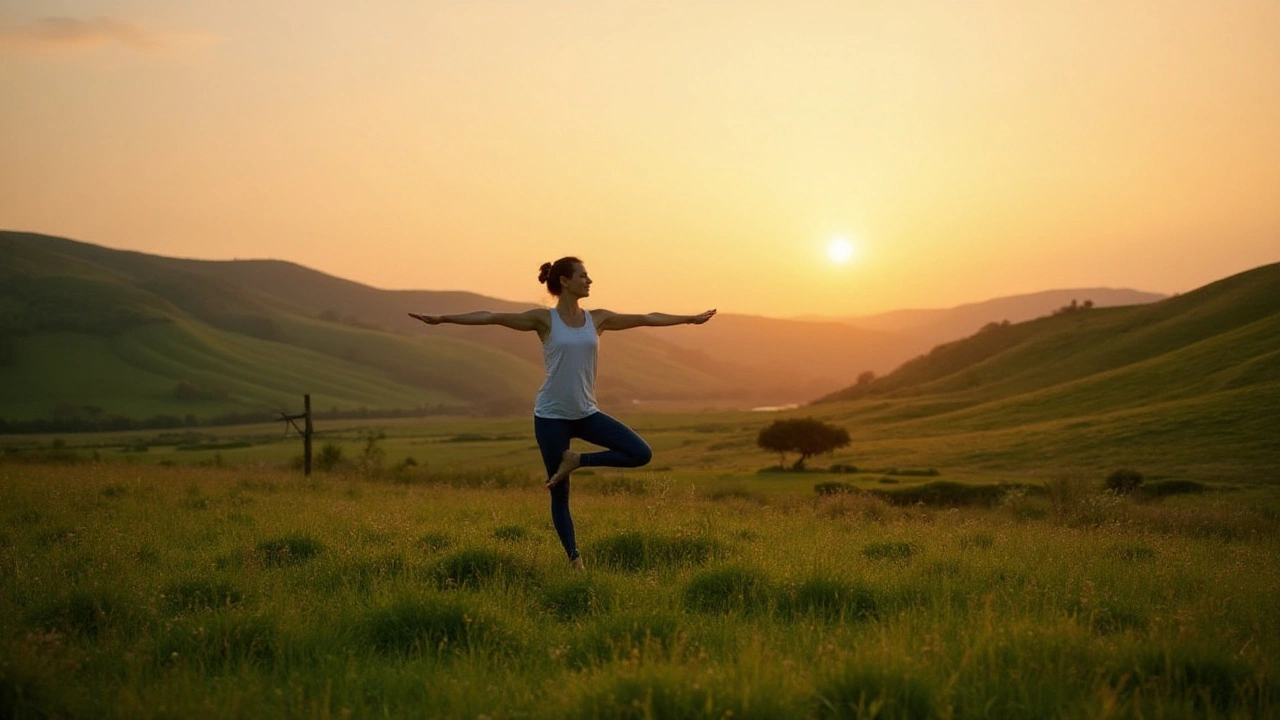Physical health made simple: small habits that change how you feel
Want more energy, fewer aches, and better focus? Physical health isn't about perfection—it's about a few reliable habits you can use every day. Below are straight-to-the-point actions and realistic routines you can start tonight.
Daily moves that actually help
Start your day with a quick combo: 5 minutes of deep breathing, 5 minutes of gentle stretching, and a 10-minute walk. Breathing wakes your nervous system, stretching reduces stiffness, and a short walk raises blood flow and mood. Do this before breakfast and you set a calm, energized tone for the whole day.
Make breakfast count: aim for protein + fiber + healthy fat. Examples that work fast: Greek yogurt with berries and oats, a scrambled egg with spinach and whole-grain toast, or a peanut-banana smoothie with a scoop of protein. These choices steady blood sugar and cut mid-morning hunger.
Fuel, gut, and recovery—practical tips
Gut health matters for energy and recovery. Add one fermented food each day (yogurt, kefir, sauerkraut) and aim for 20–30 grams of fiber from whole foods—beans, veggies, fruit, and whole grains. If you tolerate them, try a daily prebiotic food like garlic or onion to feed good bacteria.
Post-workout recovery doesn't need fancy supplements. A simple recovery drink: water, a banana, a handful of spinach, and beet or tart cherry juice if you like—blend for quick carbs, potassium, and anti-inflammatory support. Schedule a sports massage or self-massage session once every 2–6 weeks if you train regularly; it helps circulation and reduces tightness.
Sleep is non-negotiable. Cut screens 30–60 minutes before bed, keep the room cool, and use a consistent bedtime. If your mind races, try 5 minutes of guided breathing or a short body-scan meditation to slow things down.
Aromatherapy can help in simple ways: eucalyptus or peppermint for easier breathing, lavender for sleep, and a small roller of peppermint or ginger for travel nausea. Use a few drops on a tissue or a portable diffuser—no heavy rituals required.
Stress and focus tools: try short biofeedback apps or simple HRV breathing (inhale 4, exhale 6 for 3–5 minutes) to steady nerves. Meditation works even in 5-minute chunks—do it after your morning walk or before bed to build consistency.
When to see a pro: get help if pain lasts more than a few weeks, digestion worsens, sleep stays poor despite changes, or stress impacts daily life. A coach, physiotherapist, or clinician can make fast, targeted fixes.
Want specific how-tos? Check the articles on this page for recipes, step-by-step recovery routines, guided meditations, and practical tools for gut, sleep, and performance. Pick one change, use it for two weeks, then add the next. Small, steady wins add up fast.

Holistic Calmness: Uniting Mind and Body for True Well-being
Calmness is not just the absence of stress but a holistic approach to enhancing our mental and physical well-being. By integrating mind and body practices, we foster a nurturing environment that promotes peace. Discover how lifestyle adjustments, mindfulness, and connection to nature play vital roles in achieving this balance.
Read More
Unleashing the Health Benefits of Cycling: A Complete Guide to Physical and Mental Well-being
Cycling isn't just an eco-friendly mode of transportation; it's a gateway to better health, both mentally and physically. Discover how regular cycling can enhance your cardiovascular fitness, improve mental health, foster weight management, and strengthen musculoskeletal health. This article delves into the myriad of benefits that cycling offers, along with practical tips and enlightening facts, making it a comprehensive guide for anyone looking to transform their well-being through this enjoyable activity.
Read More